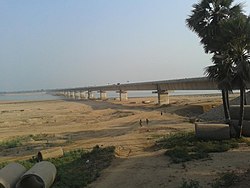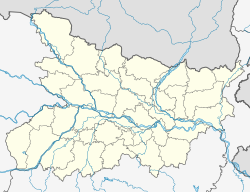This article needs additional citations for verification .(June 2015) |
Arwal | |
|---|---|
Town | |
| Coordinates: 25°14′39″N84°39′47″E / 25.24417°N 84.66306°E | |
| Country | |
| State | |
| District | Arwal |
| Population (2011) | |
• Total | 51,849 |
| Language | |
| • Official | Hindi [1] |
| • Additional official | Urdu [1] |
| • Regional | Magahi [2] |
| Time zone | UTC+5:30 (IST) |
| PIN | |
| ISO 3166 code | IN-BR |
| Vehicle registration | BR-56 |
| Website | arwal |

Arwal town is the administrative headquarters of Arwal district in Bihar state of India. It was earlier part of Jehanabad district. The district as formed to control the naxalism in the area. District was formed from the area of two near by districts i.e. Jehanabad and Aurangabad. Arwal has a population of 588,000. Arwal, the district headquarters is approximately 80 km south from the state capital Patna. Arwal town is situated on the right side bank of the Sone River, which is a tributary to the Ganges.


